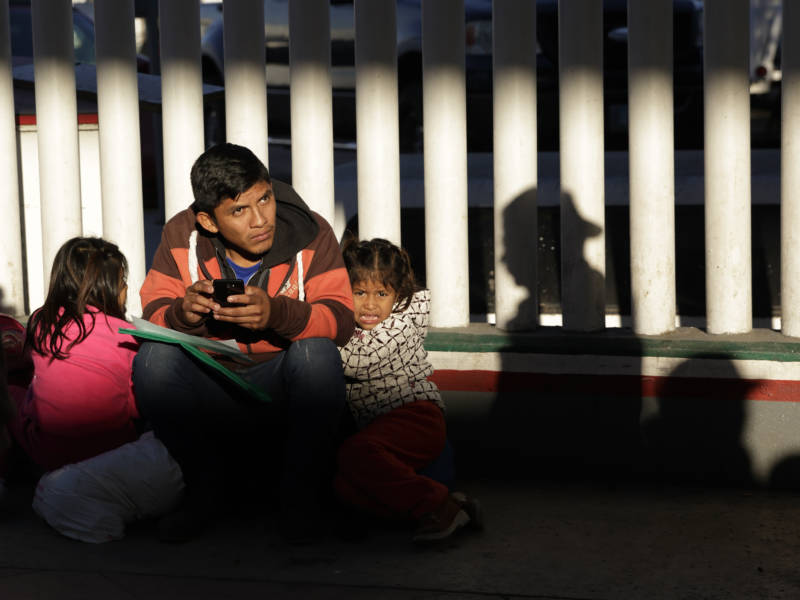Family units plus children traveling on their own now represent nearly 70 percent of all Border Patrol apprehensions.
On March 29, however, ICE announced it planned to temporarily suspend family detention at Karnes on April 1 and use the center to house single women instead, saying it needed more adult detention space. ICE officials also said that the influx of families at the border, and constraints on how long they can be detained, makes family detention unfeasible.
"The sheer volume of family units (FAMU) crossing the border has overwhelmed ICE's limited transportation resources; combined with a requirement to detain these individuals for no more than 20 days, the agency has no option but to expeditiously arrange for their release,” the agency said in a statement in March.
Immigrant advocates say they believe the change may be politically motivated.
“This is taking place at the same time that President Trump and his people are arguing that there's a national emergency at the border, that the Department of Homeland Security is ‘being overrun’ and they have ‘no bed space,’ and therefore they are forced to pursue a ‘catch and release policy,’” said attorney Peter Schey of the Center for Human Rights and Constitutional Law.
The center, a Los Angeles-based nonprofit, sued to enforce standards for the humane treatment of children in U.S. immigration custody.
That lawsuit was resolved with the 1997 Flores Settlement Agreement, which requires immigration officials to release children from custody “without unnecessary delay.” Children who remain in custody must be held in the least restrictive environment possible in a program licensed for child care. ICE family detention centers are not licensed facilities and a federal judge has ruled that children in ICE custody — even with their parents — should be released within 20 days or as soon as possible.
President Donald Trump has repeatedly criticized the Flores agreement, and at the border last week he called it, “a disaster for our country.”
However, the Flores plaintiffs’ legal team is quick to point out that the government has more flexibility than it claims. ICE may exceed the judge’s 20-day limit when there is a sudden influx of migrant children, as is currently the case.
The Center For Human Rights and Constitutional Law is sending a team of attorneys to Texas on Monday to monitor conditions at the family detention center in Dilley.
In an email seeking volunteer lawyers for the trip, Schey wrote: “With the Administration continuing to ignore multiple court orders to comply with the Settlement, our monitoring of detention sites and interviews with detained minors is more critical than ever.”
Schey said the center also plans to press the government on why it is emptying out family detention centers. The Flores settlement compels the government to reply.
“The complete inconsistency between what the Trump administration is saying and the facts on the ground is something we do intend to investigate,” he said told KQED. “It could be that this is all a grand ruse to basically try to fool the public” into believing that there is no way to detain migrant families.

